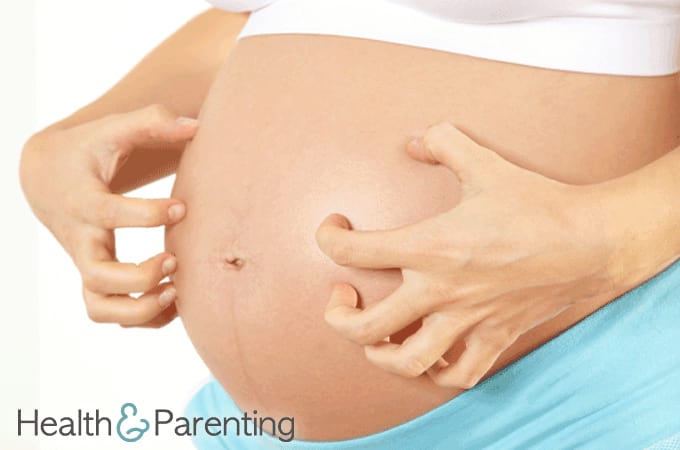What causes itchy skin during pregnancy?
Increased blood flow during pregnancy can lead to mild itchiness. Your skin may also feel itchy as it stretches to accommodate your changing body. Some women report itchy skin on their breasts during periods of growth, and some experience itchy skin on their bellies as their bumps increase in size. Mild itching is quite common during pregnancy, and often nothing to worry about, however it can be uncomfortable.
The following tips may help you to manage itchy skin during pregnancy:
- stay hydrated – drinking enough water can help your skin to stretch more easily. Remember, you need to drink more water now that you’re pregnant, even if it means more trips to the bathroom.
- moisturise – using moisturisers may help to reduce itchiness. Using a natural, chemical-free moisturiser such as extra virgin organic coconut oil may help to relieve any discomfort.
- wear loose fitting clothes – avoid tight clothes that prevent air circulation and may further irritate your skin.
- choose natural fibres – dressing in natural fibres such as cotton and bamboo may help to keep itchiness under control. Synthetic fabrics such as nylon and lycra may increase itchiness by prevent air from circulating.
- be kind to your skin – avoid strong perfumes, chemicals and lotions. Use products for sensitive skin, and try to use natural, organic products where possible. Always wear gloves when cleaning to avoid chemicals coming into contact with your skin.
Intrahepatic Cholestasis of Pregnancy (ICP)
In some cases, itchiness can be caused by ICP, a serious liver condition specific to pregnancy. The condition is caused by high levels of bile acids in the liver, and can be fatal for the developing baby. ICP is characterised by unexplained itching, which may or may not be accompanied by a rash. Some women also report feeling generally unwell and tired, and some women find their urine is darker than normal. Other symptoms include jaundice, and pale bowel movements.
For some women, the itchiness is non-stop and can be unbearable, leading to excessive itching to the point of bleeding. Non-stop itchiness can also lead to depression. ICP can occur as early as six weeks into the pregnancy, although it is more common towards the end of the pregnancy. Unfortunately, there is no cure for ICP, though the condition will clear up on its own after the birth.
If you think you may have ICP, contact your doctor immediately. If diagnosed with this condition, you will require regular monitoring throughout the pregnancy. There is an increased risk of stillbirth and premature labour, so your liver function will be tested regularly for the remainder of your pregnancy.
If the itching is unbearable, your doctor may be able to prescribe a cream or lotion to reduce itchiness. Speak to your healthcare provider about treatment options for this condition.
Written by Fiona (@Fiona_Peacock), mother, writer and lover of all things baby related.
This information is not intended to replace the advice of a trained medical doctor. Health & Parenting Ltd disclaims any liability for the decisions you make based on this information, which is provided to you on a general information basis only and not as a substitute for personalized medical advice. All contents copyright © Health & Parenting Ltd 2018. All rights reserved.










